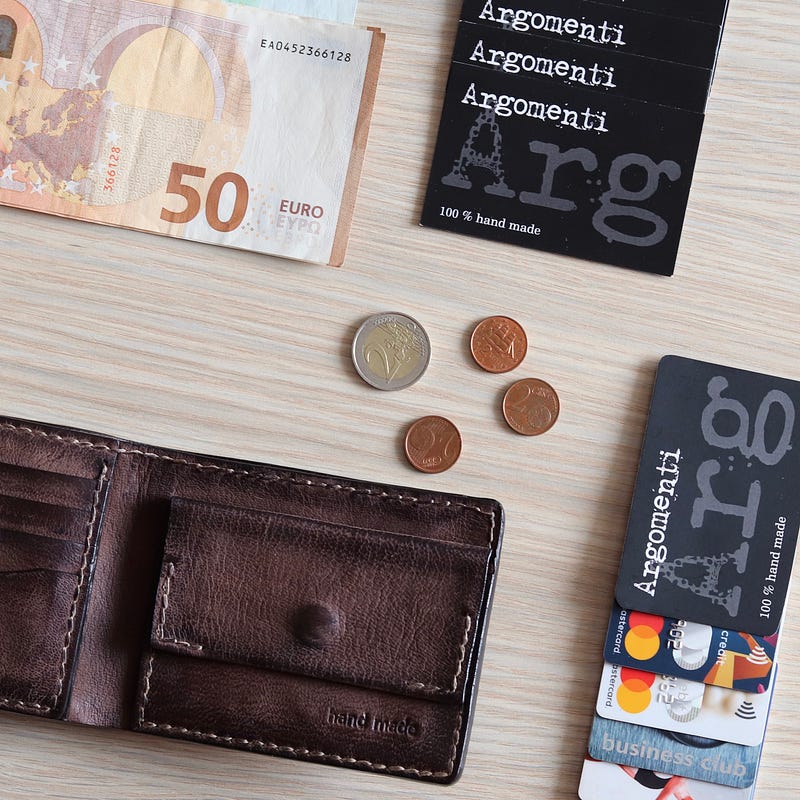No, Earning More Doesn’t Make You Rich — Here’re 5 Techniques to Become Financially Free
These five principles can push you to become financially free.

A marketing executive’s salary increased by almost ~350% in 7 years. He was earning 30% more than he thought he’d need.
Yet at the end of each month, he was left with nothing.
Nothing. Can you imagine that?
It’s not now much money you make, but how much money you keep. — Robert Kiyosaki
Money is just like the ebb and tide of the sea. When it comes, it can overwhelm you and make you believe there’s no end to it. However, that is when you need to be your most agile.
Like salt farmers store seawater, you need to ensure some of the money you earn stays with you.
Here are five techniques to help you become financially free.
5 Techniques to Become Financially Free
1. Start with a 4-bucket budget
Create a budget with 4 categories.
The first category is your monthly expenses — including rent, groceries, and debt payments. You should try to manage these within 70% of your monthly income.
The second category is about donation — helping others will have a perspective-shifting impact on your mindset. Allocate 10% of your earnings for this.
The third bucket is all about passive (or safer) investments. Investments with low yet predictable returns can be an option like government bonds. Allocate another 10% for this.
And the last bucket is all about active (riskier) investments with a higher return. This is the bucket that’ll take you toward financial freedom.
The key problem is — without having control over the first bucket, you can’t keep enough for your fourth bucket.
So, your first activity should be to create a monthly expenditure budget and then stick to it. Adhering to a budget becomes easier if you follow the next two techniques.
2. Don’t go (all) plastic
Earning money is not easy. Why should spending be so easy as tapping a plastic card?
It’s convenient to carry a card. A card is less messy than money, you don’t need to worry about exact change, you can earn points, and you don’t have to worry about running out!
YOU. DON’T. HAVE. TO. WORRY. ABOUT. RUNNING. OUT. OF. MONEY.
Our worries and fears keep us in check. When you aren’t afraid of running out, you don’t have to care about how much you spend.
Total credit card debt in the US is $841 billion. On average, each credit card holder has $5,769 in debt.
Yes, some people do need credit support. However, one of the critical reasons for debt is everyday shopping.
Most people struggle to stick to a budget or a list and purchase stuff that ends up hurting their wallets.
Don’t go cashless. Don’t spend through a credit card without a budget or critical reason.
Instead —
3. Use the enveloped budgeting system
The envelope budgeting system requires you to keep a pre-determined amount of money for a type of expense in an envelope. You can then use that envelope only for that specific expense.
If you run out, you have to stop spending.
Unlike credit cards, you now have to worry about running out.
For example, if you see you’re running out of grocery money by the 25th of a month, you won’t be allowed to buy more.
The fear of running out will force you to course correctly and spend less the following month.
The more expenses you can cover through cash, the more control you’ll have over your money.
4. Increase your wealth score
Your wealth score is about how long you can survive if you stop working today — without exhausting your savings.
The core idea is — you should have enough income-generating assets (rental property, stocks, digital assets, etc.) that should cover your monthly expenses.
To do that, choose your investments keeping two factors in mind — 1) the duration of the investment and 2) the potential return.
You need to mix them up so that you can tap into those when you need the money and minimize your risks.
5. Exercise the power of compounding
Did you know, if you start saving (or investing) $5,000 every month and continue that for 10 years at a 10% rate, you’d have almost a million dollars?

Time is a magnifier of effort. Your small yet consistent efforts can scale a mountain.
Like Andy Dufresne from Shawshank Redemption, be persistent.
There’s light at the end of the tunnel.
Final Thoughts to Become Financially Free
Learn to earn — but also how to keep your money to become financially free.
It’s not about how much you earn, but what you keep.


